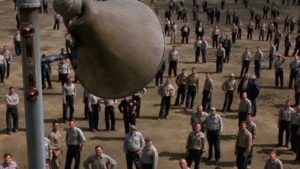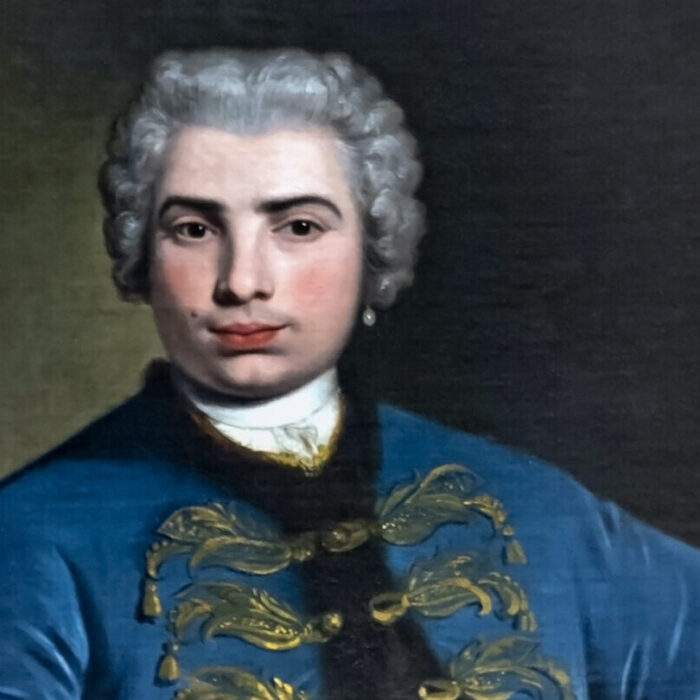
Opera Meets Film: What the Iconic Scene From ‘The Shawshank Redemption’ Says About Opera’s Greatest Power
By David Salazar“Opera Meets Film” is a feature dedicated to exploring the way that opera has been employed in cinema. We will select a section or a film in its entirety, highlighting the impact that utilizing the operatic form or sections from an opera can alter our perception of a film that we are viewing. This week’s installment “The Shawshank Redemption.”
You know the scene. Halfway through the iconic “Shawshank Redemption,” Andy Dufresne walks into the Warden’s office and plays a recording of “Le Nozze di Figaro,” specifically the Duettino “Sull’aria” across the main speakers to the entire prison. It earns him a stay at solitary confinement. But it also changes the entire story.
To this point in the film, Andy has managed to find some sure footing within the prison and integrate himself inside of the system. But conversely, the film explores Brooks’ journey as he gets parole, can’t adjust to the outside world, and ultimately hangs himself. These two narratives emphasize the feeling of being trapped and don’t necessarily point the story’s direction toward hope for any of its characters. You get a sense that like Red, whose petition for parole continually gets rejected, Andy’s future is in the prison.
So when he makes the bold decision to play the music over the loudspeakers and see the Warden and other guards infuriated by his transgression, you know he’s going to be punished for it.
But his calm demeanor, hands behind his head and feet up in a relaxed pose as Mozart’s music soars, tells you that for him it is worth it.
And as the excerpt plays, director Frank Darabont gives the audience one of the most glorious expressions of opera’s communicative power through a monologue.
Red states, “To this day, I have no idea what those two Italian ladies were singing about. Truth is, I don’t want to know. Some things are left best unsaid. I would like to think they were singing about something was so beautiful it can’t be expressed in words and make your heart ache because of it. I tell you those voices soared higher and farther than anybody in a Gray place dares to dream. It was like some beautiful bird flapped into our drab little cage and made these walls dissolve away. For the briefest moment every last man in Shawshank felt free.”
I think it is harder to encapsulate the extraordinary power of opera than in these very words. While some might take objection to Red’s statement that he doesn’t care what they say because somethings are best left unsaid, there is no denying that in many instances, opera’s power comes from more than the individual parts, but the summation of these elements and how they coalesce into something bigger – music in its all encompassing power. Music, as an abstract musical language, is able to express the deepest human emotions without the need for a direct translation of what and even when it is expressing it.
But perhaps the more powerful statement comes a few lines later when he states that the experience of hearing the two voices was akin to “some beautiful bird flapped into our drab little cage and made these walls dissolve away.”
In keeping with its conversation on opera, this is a reminder of just how powerful music is as a language. It is the only language that is truly universal because it belongs to everyone. As with Red, regardless of whether you understand Susanna and the Contessa’s dialogue throughout the duet (they are penning a letter to dupe the Count), the music is bound to speak to you on some level. And this is with all music at large. It is a language with which we can all speak to each other; it is a language of love and unity because music is created as part of an act of togetherness between a wide range of people.
It also, as expressed in the film, requires an act of listening together and sharing that experience with a group of people. As Mozart’s music plays over the speakers, Darabont lingers slightly on Andy, but cuts to numerous shots of men from around the prison, standing side by side to take in this experience. For that moment, regardless of their reasons for being in that prison, these men are humanized, the film’s reminder that regardless of their past transgressions, they remain people. Music also belongs to them also.
It can’t be lost on anyone that Darabont not only picked a Mozart opera, but that of all the selections he could choose, he picked two sopranos to enter into a film dominated by men. In fact, there is no major female character in the entirety of “Shawshank Redemption,” which only adds to its sense of a closed-off world.
But here, the sudden appearance of female voices shifts the entire emotional feel of the film, broadening the world of the story beyond the walls of the prison and the world of men to remind the men and the audience that there is so much more.
As Andy later states when questioned over his actions, “There’s something inside that they can’t get to, that they can’t touch. It’s yours. Hope.”
From this point on, the film is all about clinging and acting on that sense of hope. By the end of the movie, some of them will be rewarded for it.
Experience this iconic moment below.
Categories
Opera Meets Film

